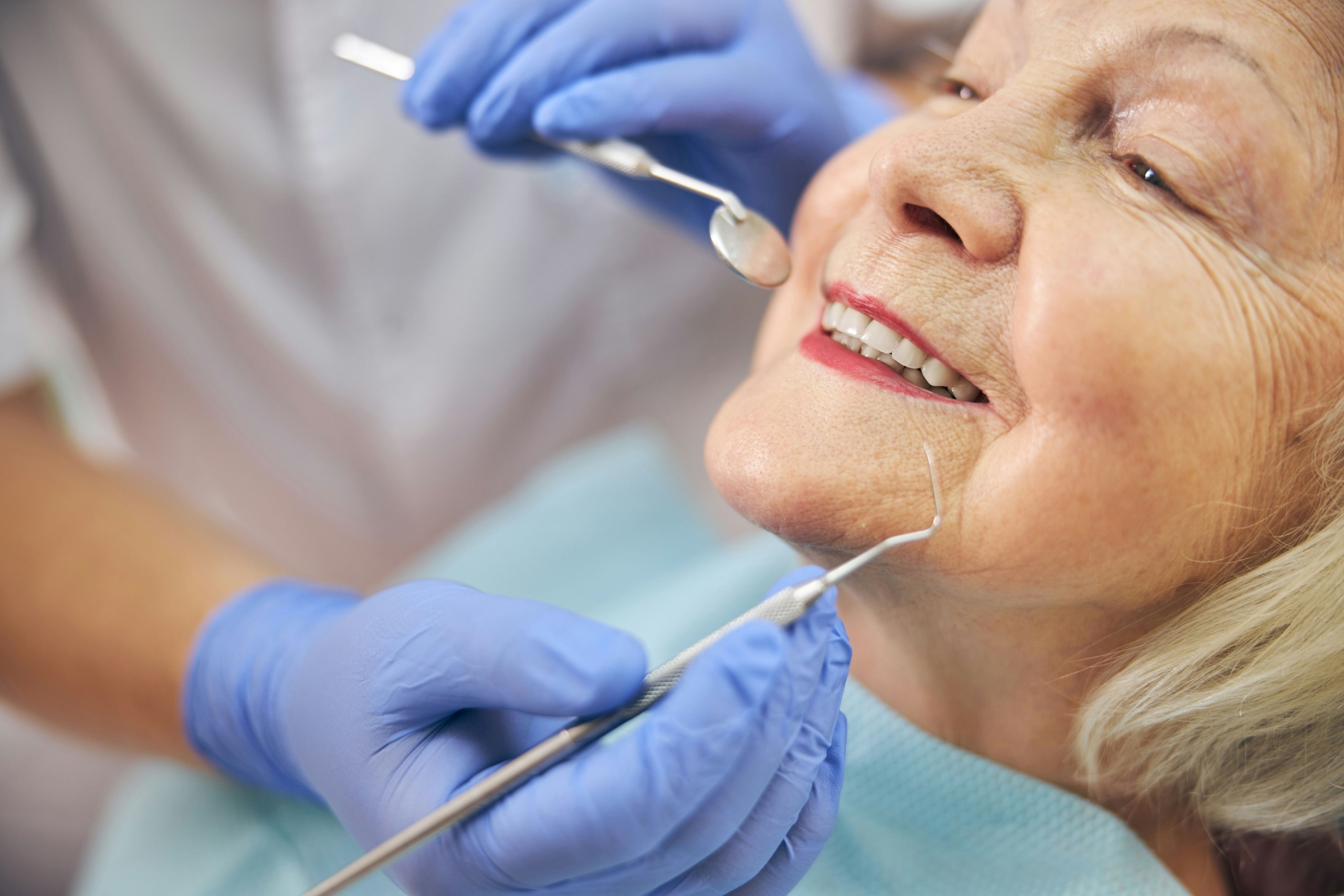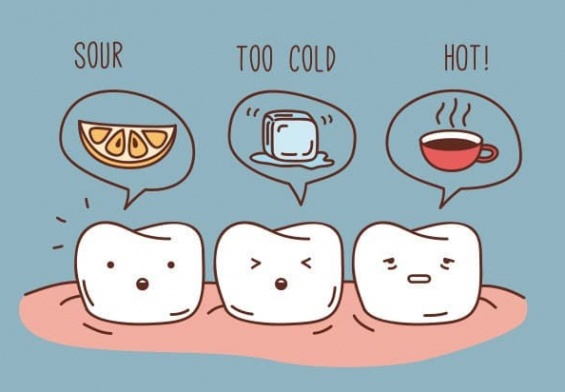What to Know and Why It Matters
For seniors receiving in-home care, dental health is often overlooked but essential for overall well-being. As older adults face unique oral health challenges, caregivers play a crucial role in supporting and promoting healthy dental habits. This blog provides essential insights into senior dental care and how in-home caregivers, such as those in Silver Spring, Ashton, and Glenview, MD, can support seniors in maintaining their oral health, ultimately enhancing their quality of life.
Why Oral Health is Vital for Seniors
Oral health impacts various aspects of seniors’ lives, from physical comfort to social engagement. Poor dental hygiene can lead to problems like gum disease, tooth decay, and dry mouth, which are particularly prevalent among older adults. These conditions can worsen with age, leading to difficulties with chewing, speaking, and even pain. For seniors who rely on 24-hour in-home care in Silver Spring, MD, caregivers can play a supportive role in maintaining good oral health and identifying any emerging dental issues.
A lack of proper dental care also correlates with more severe health complications. Studies show links between poor oral hygiene and conditions such as heart disease, diabetes, and pneumonia. By prioritizing oral health, caregivers can help prevent these more serious issues, ensuring seniors remain healthier and more comfortable.
The Role of Caregivers in Senior Dental Care
Caregivers provide critical assistance in dental hygiene, from reminding seniors to brush and floss regularly to helping them access professional dental care services. In areas like Kensington, MD, where senior in-home care services are available, caregivers can help ensure that oral hygiene remains a part of daily care routines. This is particularly important for seniors who may struggle with memory loss or physical limitations, as these conditions can make it difficult for them to care for their teeth independently.
For caregivers offering companionship care in Glenview, MD, addressing dental health becomes a valuable aspect of holistic care. Companionship care allows caregivers to monitor seniors closely, spotting changes in behavior, diet, or mouth discomfort that could indicate oral health issues.
Common Oral Health Challenges for Seniors
Some common dental issues that seniors face include:
- Gum Disease: Seniors are more prone to periodontal (gum) disease, which can lead to discomfort, gum bleeding, and tooth loss. Daily brushing, flossing, and regular dental check-ups can help prevent this.
- Tooth Decay: Tooth decay is common in older adults, often exacerbated by medications that cause dry mouth. For seniors in in-home care in Burtonsville, MD, caregivers can encourage practices like rinsing with water after meals and avoiding sugary foods.
- Dry Mouth: Many medications cause dry mouth, which can increase the risk of cavities. Caregivers can help seniors stay hydrated and may suggest sugar-free lozenges or prescribed saliva substitutes if dry mouth becomes an issue.
- Tooth Loss and Dentures: Many seniors use dentures, which need proper cleaning and care. Caregivers, especially those providing elder care in Ashton, MD, can assist with denture cleaning and ensure the dentures fit correctly to avoid discomfort.
Practical Tips for Caregivers to Support Senior Dental Care
Providing dental care for seniors can be challenging, particularly when mobility or cognitive issues are involved. Here are practical strategies caregivers can adopt to help maintain their clients’ oral health:
- Establish a Routine: Caregivers should establish a consistent daily oral hygiene routine. Encouraging seniors to brush twice a day and floss once daily can make a significant difference. In cases where physical limitations make these tasks difficult, caregivers can provide direct assistance or suggest alternative tools like floss picks or electric toothbrushes.
- Monitor Diet: Diet impacts oral health, especially when sugary foods and acidic drinks are frequent. Caregivers offering home care in White Oak, MD can help plan balanced meals that support oral health, limiting sugar intake and including foods rich in calcium and vitamins.
- Encourage Regular Dental Check-ups: Caregivers should encourage regular dental visits, as early detection can prevent severe dental issues. For seniors who may be hesitant, caregivers can remind them of the benefits of professional dental care, especially if they receive home care in Silver Spring, MD, where dental services are accessible.
- Stay Alert to Oral Health Red Flags: Pain, swelling, or bleeding gums can be early signs of gum disease or other dental issues. Caregivers should observe their clients’ oral health and report any concerning signs to family members or health providers. This is particularly important for caregivers providing 24-hour in-home care in Takoma Park, MD, as they can spot these symptoms early on and ensure timely intervention.
- Provide Denture Care Assistance: Many seniors wear dentures, which need specific care. Caregivers can assist with cleaning and storing dentures properly, which is essential for avoiding infections and discomfort. For seniors in home care assistance in Kensington, MD, caregivers can also ensure dentures are correctly fitted, as ill-fitting dentures can cause sores and impact nutrition.
Specialized Dental Care for Dementia Patients
For seniors with dementia, maintaining oral health can be more complex, as they may not fully understand or cooperate with dental routines. Dementia home care services in Silver Spring, MD, often involve specialized training for caregivers, equipping them with techniques to provide dental care in a gentle, patient-centered manner. Caregivers might use approaches such as:
- Hand-over-hand Guidance: This technique involves guiding the senior’s hand to perform brushing, providing physical support that encourages independence.
- Routine and Familiarity: Dementia patients benefit from familiar routines. Using the same toothbrush, toothpaste, and timing daily can reduce resistance and confusion.
- Positive Reinforcement: Offering praise and encouragement during and after dental care routines can create a more positive experience.
For dementia patients, caregivers can help with at-home dementia care, where they integrate oral hygiene into the broader scope of personalized care. In locations like Ashton, MD, dementia caregivers often receive training on managing daily routines that support both oral and mental well-being.
The Essential Role of Dental Care in Comprehensive Senior Support
Incorporating dental care into senior care routines is an essential but often overlooked aspect of holistic home care. By assisting with daily oral hygiene practices and encouraging regular dental check-ups, caregivers play a vital role in preventing more serious health complications. For those providing elder care in Silver Spring, MD, and surrounding areas, a proactive approach to dental health can enhance the comfort, nutrition, and quality of life for the seniors they serve.
The integration of dental care into senior care services, especially in regions like Glenview, MD and Kensington, MD, shows that even small steps toward improved oral hygiene can make a significant difference. When caregivers support seniors in maintaining oral health, they contribute to a more comprehensive model of well-being that respects the unique needs and challenges of aging adults.
Resources:
- Dental Care for Seniors – WebMD
- The senior’s guide to dental care – Harvard Health Publishing
- Oral Health for Older Adults: Quick Tips – Office of Disease Prevention and Health Promotion




